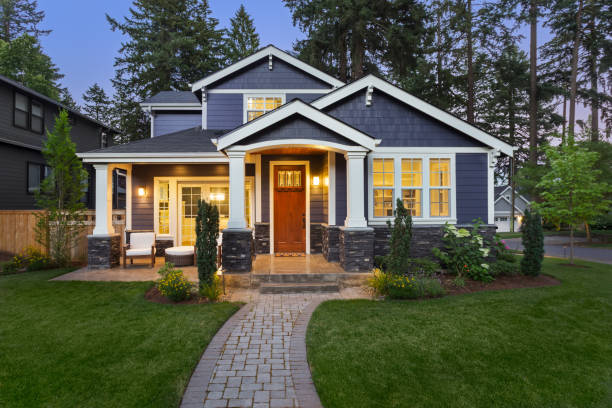When you are selling your home, there are many questions you might have about the value of your home as a whole. Whether you have just done some remodeling for the sale or you are tidying up the space you have, it’s not just the home that estimates its value. Below are eight of the most important factors to consider when you are putting a market value on your home.
#1 Neighborhood
Whether your home is a regular residential home or a home within a subdivision, the neighborhood it is in affects its overall value. If there are other homes within your neighborhood that are also for sale, these comparable homes will be a price effect. Whether they have a finished basement and yours doesn’t, you have a pool and they don’t, there are many ways that these other homes can alter the price of yours when it goes on the market.
#2 Location
Not only will the neighborhood have an effect on the price of your home but the location of the home itself will be a big deciding factor. Buyers will look at the location of the home itself but they will also see what is close by the neighborhood. What schools are located nearby and the rating of the districts, what amenities are close to the home, like post offices, shopping complexes, etc. People will also look at whether the home is close to highways, utility lines, or if there are routes near it that are traveled by public transit.
#3 Size and Space
This is an easy part. The bigger the home, the higher the value. Not only that, but buyers like to look at the home’s usable space. One of the big things that real estate agency’s do is look at the square footage of a home. That’s another telling factor when it comes to value. Use this as a reference point: if you have roughly 2,000 square feet to a home, that can value to approximately $200,000. Per square foot would be $100.
So, if you have 2,000 square feet but a 600 square foot garage, 1,400 square feet is usable. Garages, unfinished basements, etc. are considered unusable.
#4 Age and Condition
It’s no surprise that newer homes tend to be appraised for more and older homes are appraised for less. The fact that critical parts of the house, like plumbing, electrical, the roof, and appliances are newer and therefore less likely to break down, can generate savings and future repairs for the buyer.
Most buyers will be ready to pay top dollar for homes that are ready to be moved into, which means they have all the amenities included, like furniture, appliances, etc.
#5 Upgrades and Updates
Updates and upgrades can add value to your home, especially in older homes that may have outdated features. If the original buyer moved in and decided to finish the basement themselves, then having that finished basement adds to the usable square footage of the time, increasing the value.
Additionally, some projects like adding a pool tend to have bigger increases for more expensive homes, while projects like a bathroom remodel have a bigger increase for less expensive homes.
#6 Local Market
Even if your home is in excellent condition and in the best location with premium upgrades, the number of other properties for sale in your area and the number of buyers in the market can impact your home value. The local market also affects how long your home stays on the market.
If your home has been on the market for a longer period of time, buyers may perceive there is something wrong or that the price is too high. Remember to ask your real estate agent about all of your pricing concerns.
#7 The Economy
The economy can plunge one day and skyrocket the next. It’s hard to figure out what sort of timeline it’s on or if it’s on one at all. The broader economy often impacts a person’s ability to buy or sell a home, so in slower economic conditions, the housing market can struggle.
Say there are low interest rates right now. That means that more people or families can afford a mortgage. With that, the demand for available homes for sale goes up and so do the prices.
#8 Interest Rates
Both short-term and long-term interest rates influence your ability to afford a home, but in different ways. Short-term interest rates don’t directly impact long term interest rates. The point is as interest rates increase, fewer people may be able to afford homes, and this can impact how much you can sell your home for.
Summary
Make sure to always consult with your real estate agent and even your home inspector when putting a price on your home.





